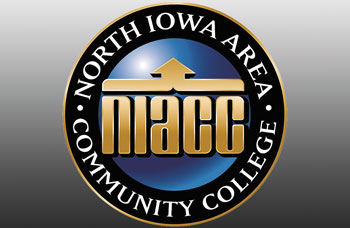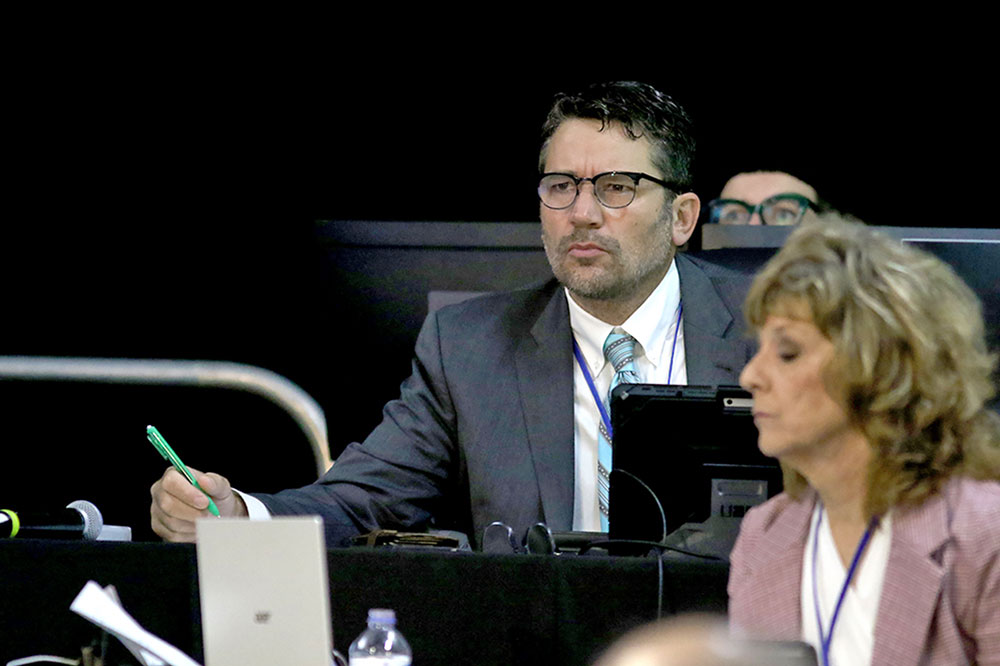Council members table talk concerning trimming trees
By Kelly Terpstra, kterpstra@charlescitypress.com
No agreement was reached, so the City Council will continue discussion concerning low-hanging tree limbs in the city right of way at a later date.
“Let’s mull this over and revisit it this again,” said Mayor Dean Andrews at the council’s planning session Monday evening.
City Administrator Steve Diers said that there are approximately 2,800 trees that need to be trimmed in Charles City. City code states that it is the duty of the property owner to keep trees trimmed to a height of 15 feet above the street and 8 feet above the sidewalk.
What complicates the matter is the city code says anyone who trims trees must be licensed and bonded, bringing into question whether abutting property owners could trim the trees themselves. And there are liability concerns should the city allow property owners to do the work themselves.
“We require the homeowner to trim the tree, but we don’t allow them to personally trim the tree unless they’re a tree trimmer,” said Diers.
Andrews was in favor of letting residents trim their own trees and thought the city code needs to be amended.
“If you’re going to have a code and you don’t enforce it, there’s no sense in having a code,” said Andrews. “I think we need to change our code.”
Diers said Dirk Uetz, Charles City’s street superintendent, received quotes about hiring a professional tree trimming crew and one figure to do that work without city assistance was just shy of $200,000.
Diers proposed trimming 1,000 trees a year in three separate waves. The cost estimate broke that down to roughly $75 per tree. Diers also said that two to three city street crews could help with hauling away limbs, which would be much more effective than coordinating property owners to do it.
There’s also an issue of assessing what trees got trimmed by individual property owners should the ordinance be changed and outside help wasn’t contracted. Diers said the city of Decorah struggled with a similar situation and the town ended up trimming the trees themselves.
“They tried to go back and assess it and he said it was such a nightmare. They said ‘forget it, we’re just going to do it,’” said Diers.
Council member Michael Hammond agreed that trying to assess what work was done on trees and what wasn’t could be a logistical headache to say the least, not to mention costing a considerable amount of money.
“There’s no way it’s going to fly,” said Hammond, about an assessment.
Hammond summed up the back-and-forth discussion: “You gotta have your boots on; it’s kind of muddy,” he said.
There was also talk about the city sharing an human resources position with the Charles City School District, with the city contributing 40 percent of the applicant’s salary. The person would work in a city capacity two days a week and be paid $25,000 yearly by the city, which included salary and benefits. The work would focus on scanning documents and various tasks. Several on the council agreed that some of those tasks seemed more appropriate work for an entry-level position, rather than an HR candidate.
“So you’re going to hire a professional HR person? I don’t think they’re going to be interested in doing scanning and things like that when they’re here,” said council member DeLaine Freeseman.
The school district receives state funding to hired shared positions, but the city would not receive any funding in paying its share of the salary, should an applicant be hired.
The council agreed to decline the offer made by the school district.
The council agreed it would be a good idea to submit a application to the AARP (American Association of Retired Persons) Age Friendly Community program. AARP could potentially partner with Charles City to determine what things were being done that were considered age friendly in town. There would also be a study conducted to decide what citizens of Charles City want and need in an age-friendly community.
It was agreed upon that GHD Services Inc. would conduct its annual monitoring and maintenance of the test wells at the groundwater monitoring system at the Shaw Avenue dump site. The city’s share is 50 percent and totals $13,800 and comes from the general fund. Zoetis shares the remaining cost.








Social Share